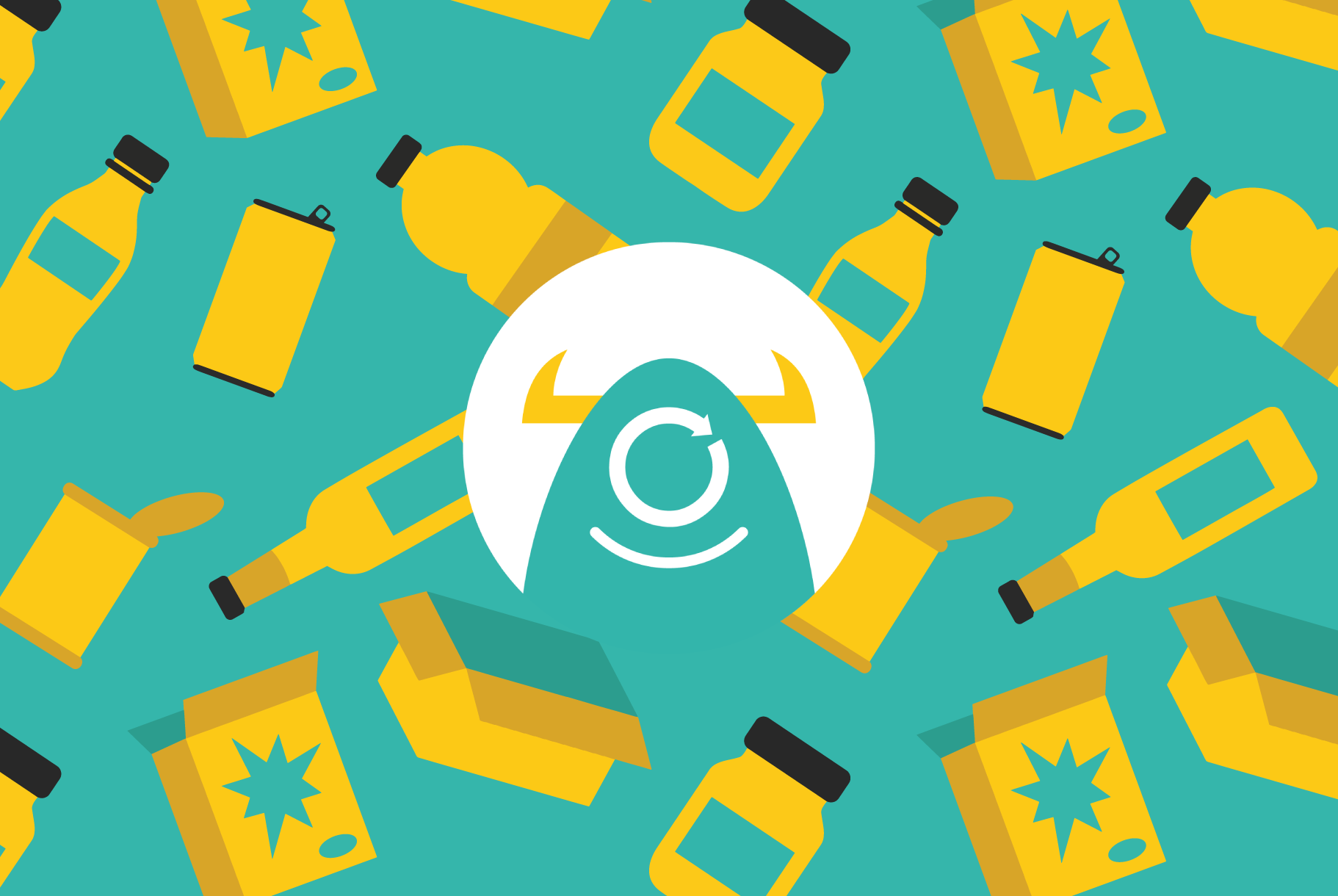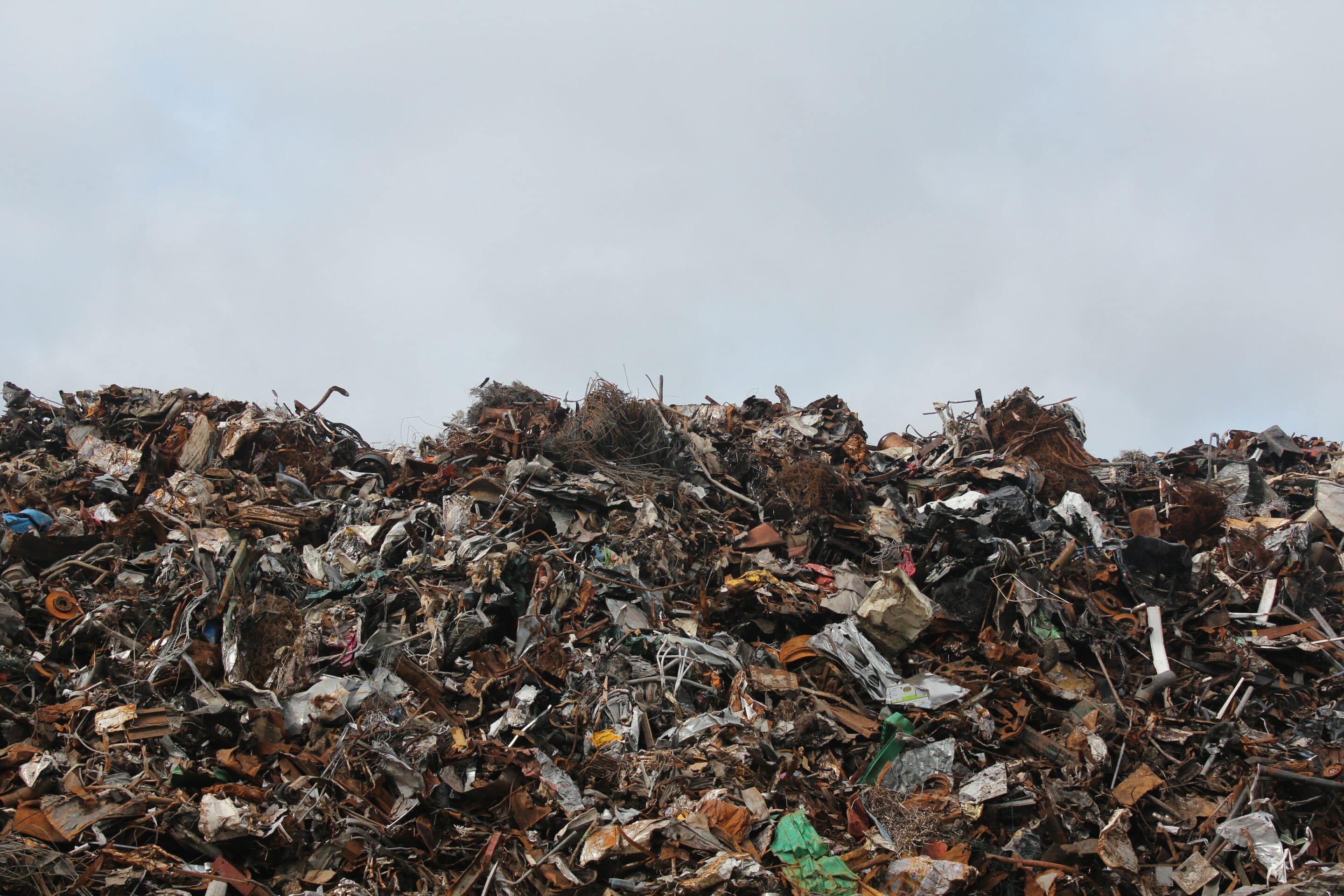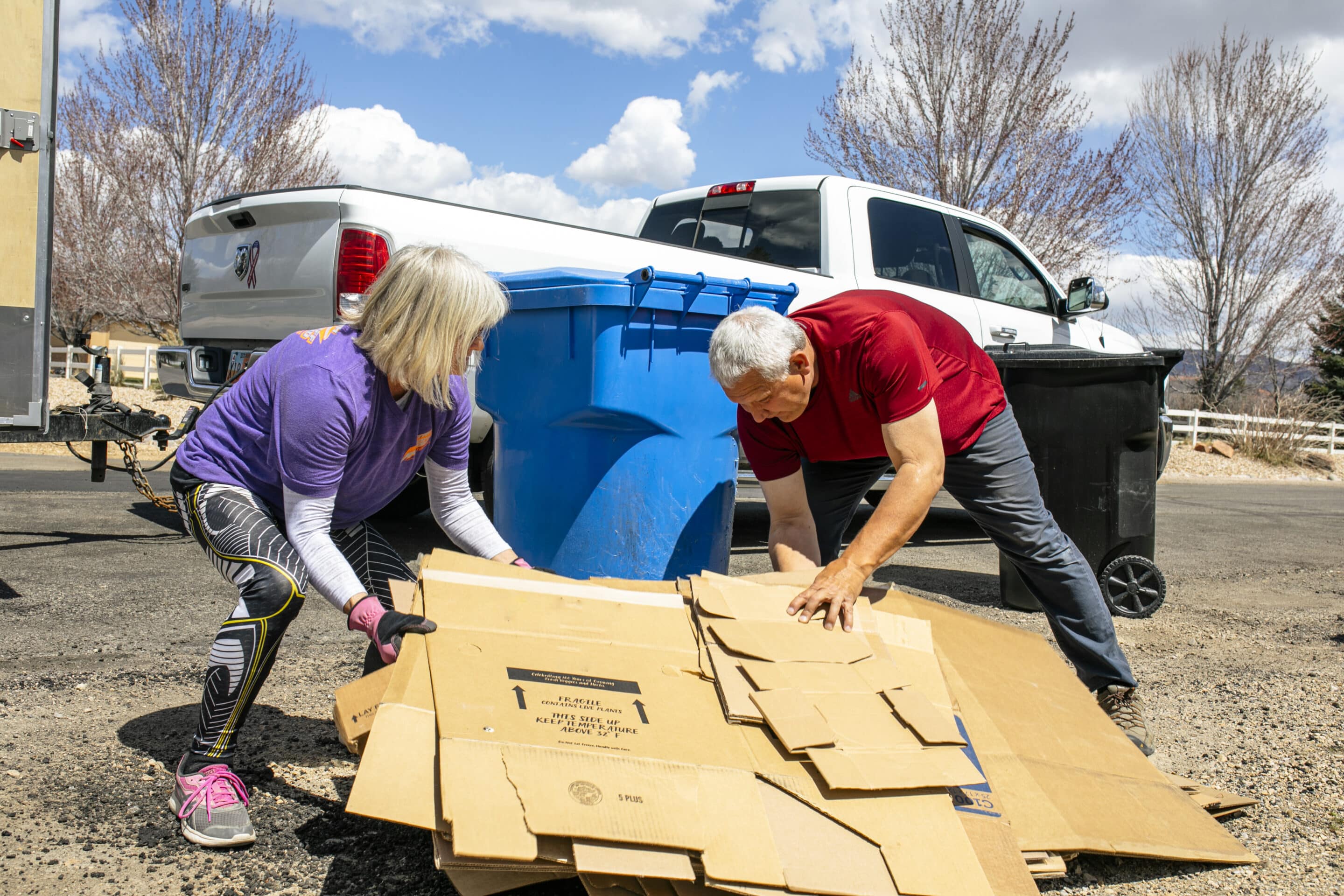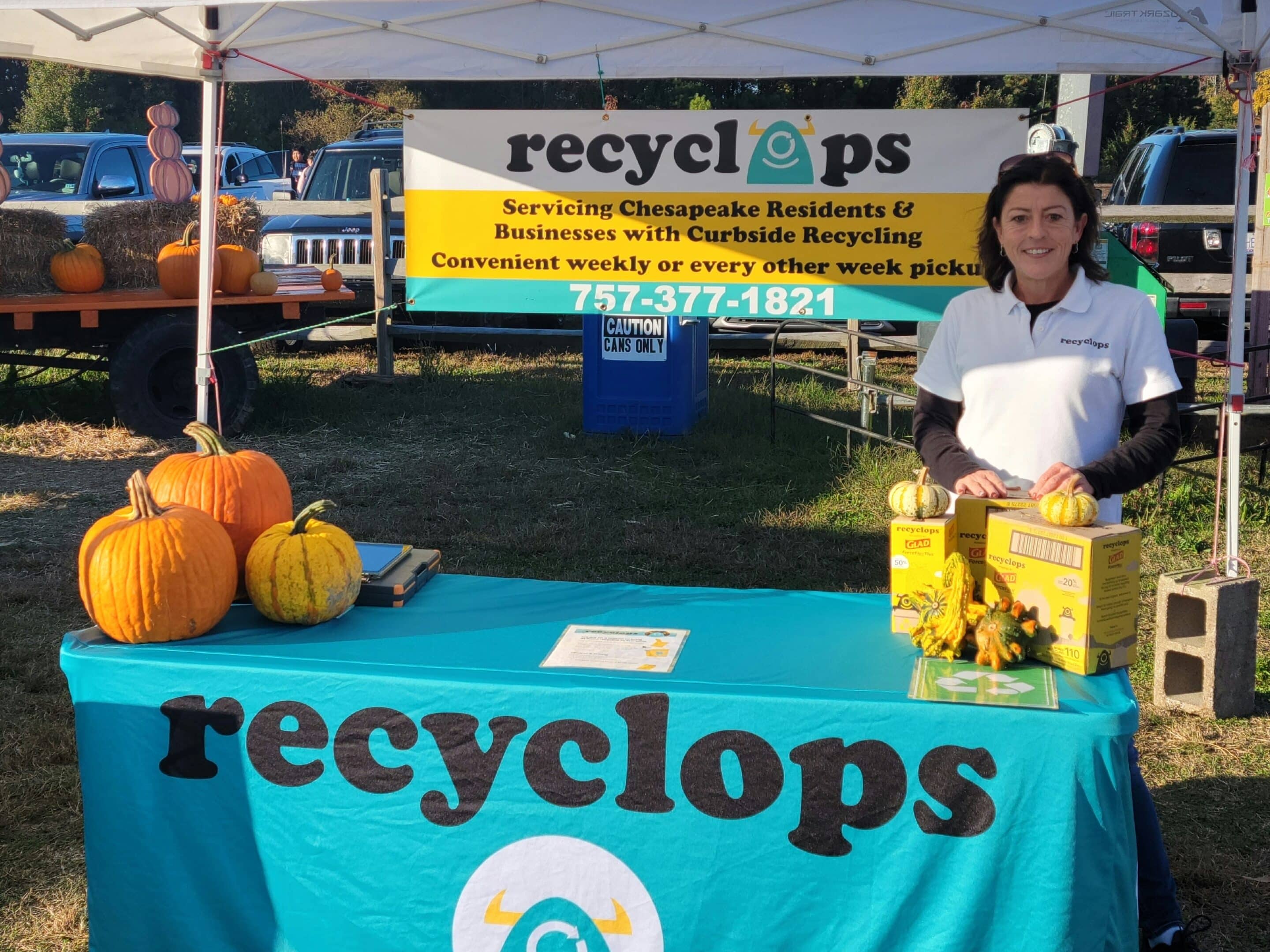How the Rest of the World Recycles.
Learn more about other recycling systems around the world. Read more below.
At Recyclops, we are committed to providing access to affordable, and convenient recycling throughout the United States. The recycling industry is still growing today as more communities choose to live sustainable lifestyles. Communities throughout the United States, however, aren’t the only ones making a difference through recycling.
Germany created and uses a recycling program called the Green Dot System. The Green Dot System uses six different bins classified according to a color system, which tells users what kind of waste they can put into each bin.
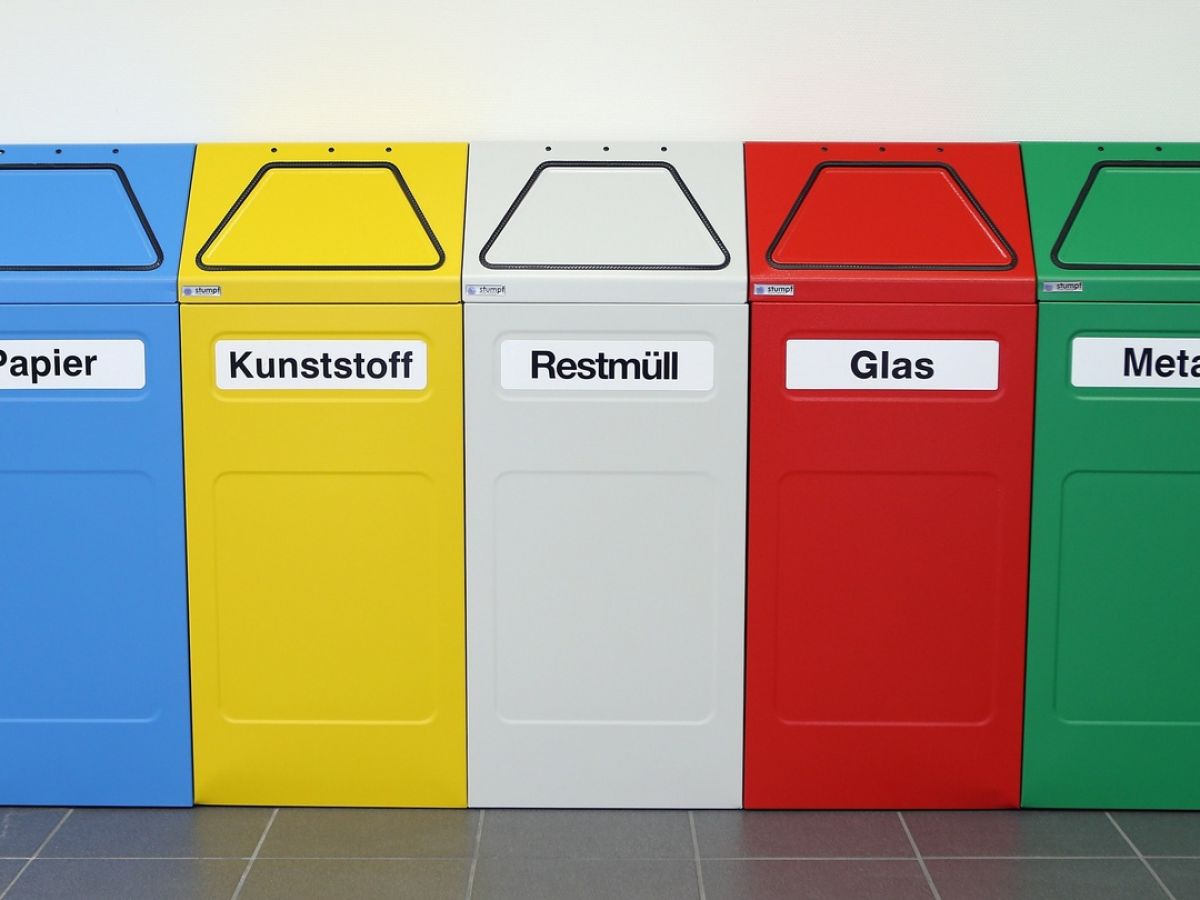
Additionally, if a citizen is found inserting waste or contaminants into the wrong bin may constitute an offense. This may lead to the imposition of an economic fine in Germany. Overall, Germany saw an average recycling rate of 56.1% in 2018.
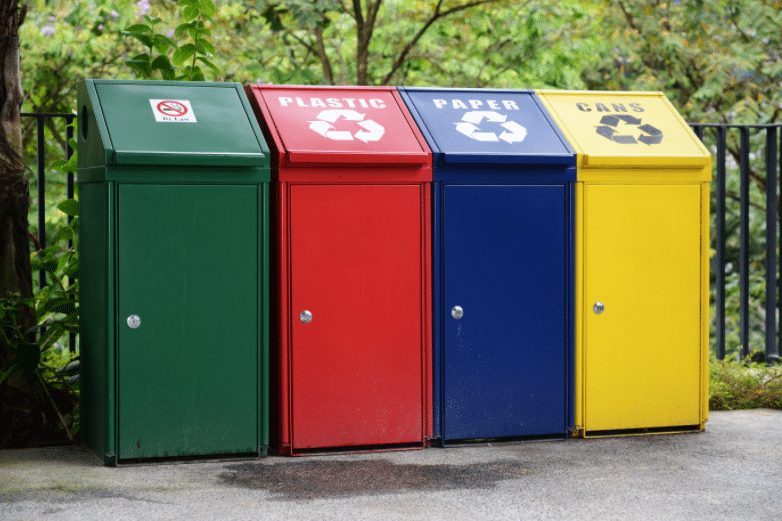
Additionally, recycling is paid through their municipal taxes. For the recycling sorting process, recycling is sorted into organic waste, waste paper, and plastic packaging. This helps to combat recycling contamination at its source. Overall, Austria saw an average recycling rate of 53.8% in 2018.
Learn more about recycling contamination on our blog.
The main recycling waste categories are as follows:
- Compost/ organic substances
- Paper and cardboard
- PET bottles
- Plastic material
- Glass
- Aluminum
- Batteries
- Electronic and electrical equipment
- Textiles and shoes
Overall, Switzerland saw an average recycling rate of 49.7% in 2018.
South Korea follows a similar system to the United States. South Korea’s waste management system is known as Jongnyangje. In South Korea, paper, glass, steel, fabrics, and plastics are recycled. Interestingly, recycling arrangements vary from place to place. However, recycling must always be separated into different types and compressed or flattened before disposal.
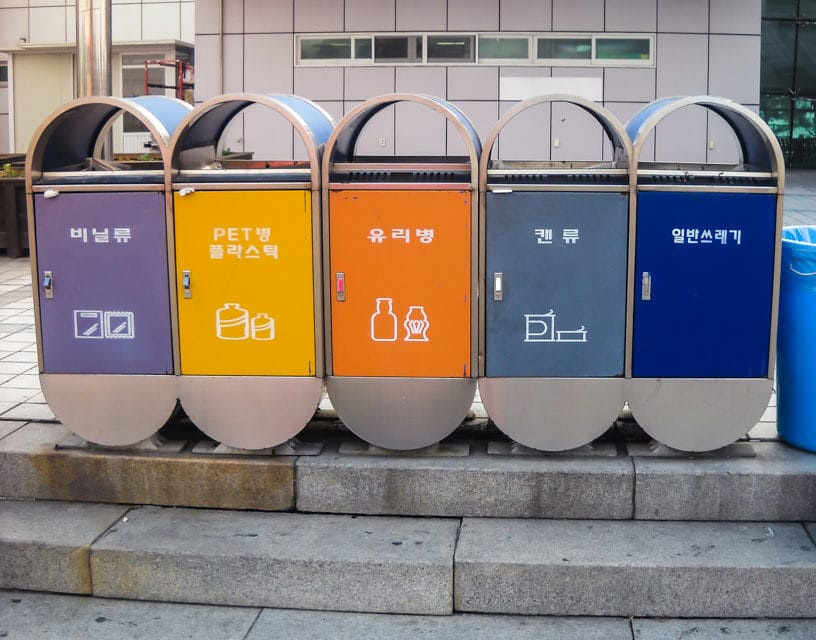
- Landfill waste
- Organic waste
- Recyclables
- Large waste objects
Following this system is mandatory. If the system is not followed there are penalty charges for non-compliance, and also rewards for reporting non-compliance. This rewards positive recycling behavior while motivating negative behavior to be fixed. Overall, South Korea saw an average recycling rate of 53.7% in 2018.
In Wales, recycling systems are broken up by “councils”. Five out of the 22 councils operate a “co-mingled method”. The co-mingled method involves the council sorting recycling for residents.
Using both strategies, Welsh politicians are pushing for a 100% recycling rate by 2050. In 2018 however, Wales saw an average recycling rate of 52.2%.
According to the Environmental Protection Agency (EPA), Americans generate more than 267 million tons of solid waste every year. In 2017 however, only 94.2 million tons of that waste was either recycled or composted. That puts the US average recycling rate at 35%. Additionally, according to the EPA, only 8% of discarded plastics were recycled in 2017.
Our team at Recyclops makes it easy to recycle today straight from the convenience of your home. With our service, you know that your recyclables are going to a designated recycling facility and not a landfill. Learn more about where your recycling goes here.
Depending on your location, recycling is as easy as putting all your materials in one or more bags (depending on how many you have) and putting them right on your doorstep or curbside. Your local Recyclops driver will be there to pick up your materials and ensure they arrive at the destination. And don’t worry about making space for another bin, Recyclops bags or carts come with all our services and pickups come at your convenience.
We want to make recycling easy and simple, and that starts with recycling on your schedule.


